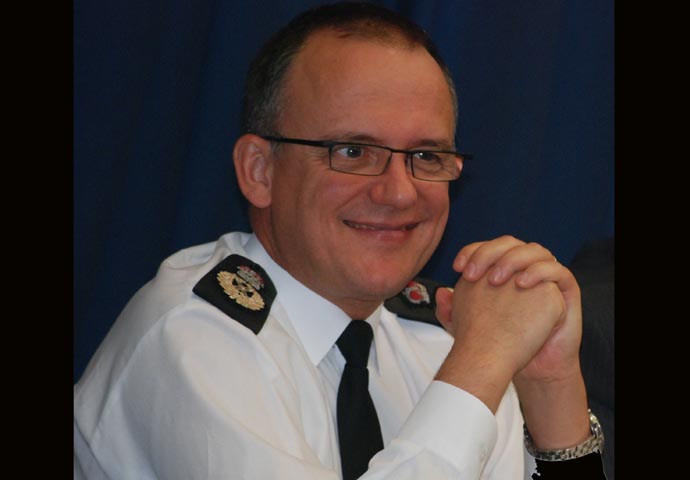Met’s new chief must prioritise rape prosecution crisis
COMMENT: Reporting non-consensual sex should be the beginning of a simple route to justice. Why is it for so many women a source of further and lasting pain?
Thursday, 11th August 2022

New Metropolitan Police commissioner Sir Mark Rowley [Surry County Council News / Cc By 2.0]
GRACE Campbell was brave in writing about a rape ordeal which happened to her thousands of miles away in a Las Vegas hotel, (Comic tells why she felt she could not go to police after stairwell rape, August 11).
Her frustrations about what happened next – or didn’t happen next – will chime with many women back home in Camden.
Reporting non-consensual sex should be the beginning of a simple route to justice. Why is it for so many women a source of further and lasting pain?
Less than 1 per cent of rapes reported to police result in a conviction. Nearly two thirds of cases do not reach any conclusion, usually because a victim may not be able to bear the prospect of a long-drawn-out process.
Recent figures show how on average it takes more than two years from reporting an offence to the police until the start of a trial.
There needs to be specialist support to guide victims through the process, and improved counselling to deal with the long-term effects. Any initial hesitancy could be helped by an anonymous reporting system or easy access to a dedicated rape team.
Specialised training for officers would significantly improve the response to rape and sexual offences.
The Met is itself in need of a reform with high levels of distrust following several public scandals and following years of criminalisation and harassment – particularly of black people.
Court, too, can be a daunting place at the best of times. Legal experts have called for a wider use of pre-recorded testimonies if witnesses are intimidated. The special measure tactic of clearing a courtroom for victim’s testimonies could also be used more freely.
A lack of collaboration between the police and prosecutors leads to delays and poor communication with victims.
They would be better supported through the justice system, and less likely to withdraw from proceedings, if they had better access to independent legal advice.
But this has been shorn away by the government over many years through legal aid cuts. The courts seem to be in a state of perpetual chaos, with adjournments after adjournments. The legal aid issue is not just about lawyers’ pay, it is about access to justice. It affects all of us.
Experts have said the government’s most recent “Rape Review” – a strategy for reversing the decline in rape charges and prosecutions – lacks ambition.
Sir Mark Rowley, the recently-installed Metropolitan Police commissioner, needs to make this a top priority for in his new role.